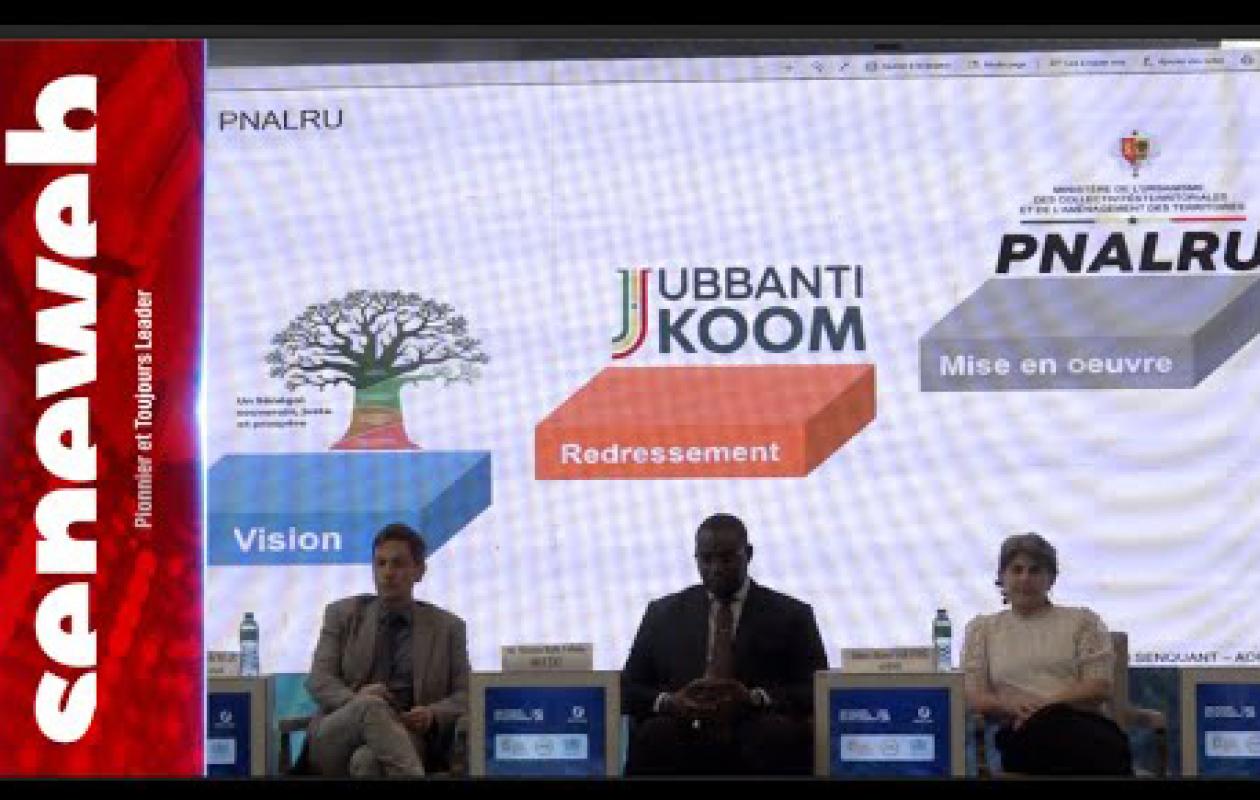
Crise urbaine liée au climat et aux conflits : L’Etat du Sénégal et les acteurs se penchent pour une construction durable
World Habitat Day opened this Monday, October 20, 2025, in Dakar, under the chairmanship of the Minister of Urban Planning, Local Authorities and Regional Development, Moussa Bala Fofana. This symbolic meeting, dedicated this year to the "response to the urban crisis linked to climate and conflicts," invites public decision-makers, private actors, researchers, donors and civil society to reflect, to act, but above all to dare to transform our cities and our ways of building. It noted the presence, in particular, of the representative of the Deputy Director for West Africa of the United Nations Human Settlements Programme (UN-Habitat); of Ms. Hélène Sabathie Akonor, Director of International Action at the Agency for Ecological Transition of the French Republic (ADEME); and of Ms. Dieynaba Seydou Ba, Director General of RaceCom.
Objective: “to pave the way towards sovereign, accessible and resilient housing, capable of meeting the needs of Senegal”
World Habitat Day is held every October. This year's theme is "Responding to the Urban Crisis Linked to Climate and Conflict." The day aims to demonstrate that sustainable construction can address the structural housing deficit while contributing to the ecological transition. It aims to pave the way toward sovereign, accessible, and resilient housing, capable of meeting Senegal's needs and strengthening its autonomy.
“Housing is a right, a duty and a project of civilization”
In this regard, the Minister of Urban Planning, Local Authorities, and Regional Development reviewed the issues and challenges. "In Senegal, housing is not just a social issue. It is a question of dignity, justice, and sovereignty. For too long, housing has been considered a simple economic commodity. Today, we strongly affirm: housing is a right, a duty, and a project of civilization," Moussa Bala Fofana emphasized.
According to him, the structural deficit projected at 500,000 homes within ten years symbolizes "an expectation, that of families who aspire to a safe home, an organized environment, a future anchored in stability."
To meet this expectation, the Minister reports that the President of the Republic, Bassirou Diomaye Faye, has included the National Program for Access to Housing and Urban Renewal (PNALRU) among the major priorities of the new Senegal. For him, it is a structuring program, designed not only to meet social demand, but also to fundamentally reorient our urban and economic development model.
"The PNALRU is not a sectoral program: it is a sovereignty project, a project of economic independence and an act of faith in our ability to build for ourselves," he maintained.
“We can no longer build our cities as before”
Moussa Bala Fofana also emphasized the need for a paradigm shift toward sustainable construction. "We can no longer build our cities as before. The time has come to break with the imported, energy-intensive model that weighs on our finances and weakens our environment. Senegal has inestimable wealth: its materials, its knowledge, and its skills. We have typha, laterite, stabilized earth, bamboo, and the stone of our land. These resources, long neglected, are the pillars of sovereign, ecological, and economic construction. Building sustainably means building nationally," he insisted.
“This year’s theme resonates particularly with the challenges facing Senegal.”
The representative of the Deputy Director for West Africa of the United Nations Human Settlements Programme (UN-Habitat), for her part, argued that this year's theme "resonates particularly with the challenges of Senegal, where the effects of climate change and social pressures accentuate urban vulnerability."
Faced with this situation, she informs that UN-Habitat, as a UN agency, intends to provide its technical expertise, know-how and international experience in order to "contribute concretely" to the achievement of Vision Senegal 2050, in particular through the strategic and innovative axis of land use planning and development.
During the meeting, Moussa Tine, Director General of Construction and Housing, presented the National Program for Access to Housing and Urban Renewal (PNALRU) to the participants, including its context and major issues.
Ms. Hélène Sabathie Akonor, Director of International Action at the French Agency for Ecological Transition (ADEME), presented the Senegal Low-Carbon Bioclimatic Building Development (SENABBBAC) program. The aim here is to integrate an environmental approach into projects for the development and construction of bioclimatic and low-carbon buildings.
The day also noted the holding of a panel on "The challenges and obstacles to sustainable construction with a view to implementing the PNALRU.
Commentaires (0)
Participer à la Discussion
Règles de la communauté :
💡 Astuce : Utilisez des emojis depuis votre téléphone ou le module emoji ci-dessous. Cliquez sur GIF pour ajouter un GIF animé. Collez un lien X/Twitter ou TikTok pour l'afficher automatiquement.